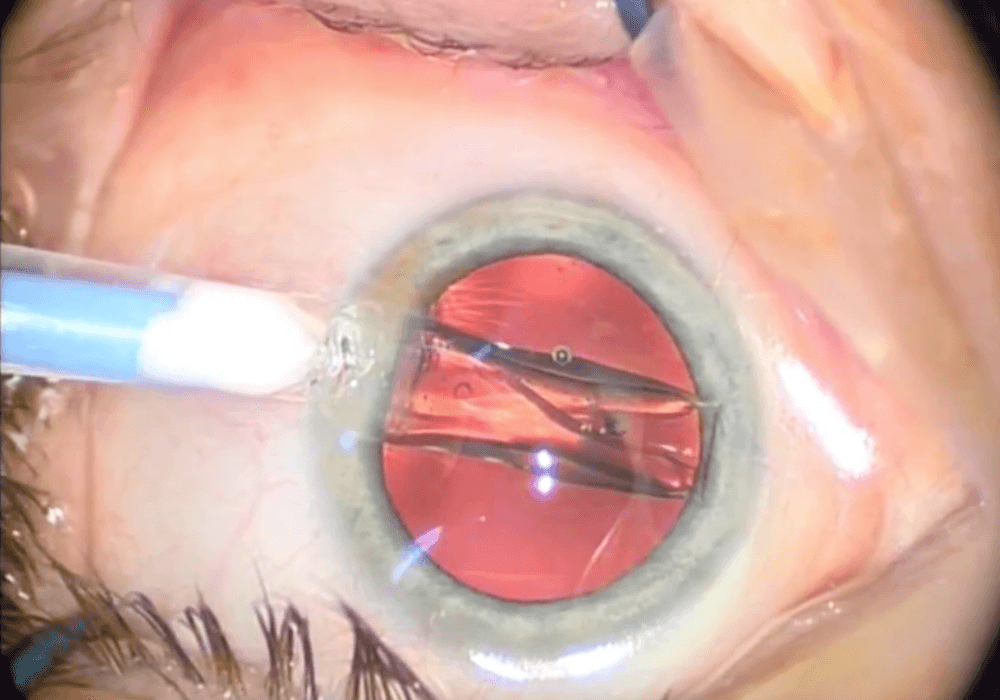 |
|
While it remains unknown whether cataract surgery directly affects the risk of AMD and its progression, researchers recently reported that the association between the two appears to become more significant with longer follow-up periods. Photo: Wikicommons/Augen33. Click image to enlarge. |
Editor’s Note: As part of our “Year in Review” retrospective, we’ve selected the top 30 news stories of the year and are re-sharing them as we close out 2022. Follow along as we count down to number 1!
This story was originally published on November 14, 2022.
No. 3 biggest news story of 2022:
As the US population ages, the number of people with cataracts and age-related macular degeneration (AMD)—two of the most common causes of vision loss or impairment in those 50 and older—will continue to climb. While surgery is a proven effective intervention for cataracts, research has shown that the procedure has the potential to worsen AMD in patients with the comorbid condition. In fact, a new study found that cataract surgery not only increased the risk of more severe AMD progression but was also associated with faster progression of early-to-late AMD.
Eight cohort studies on cataract surgery in AMD patients were sourced from various medical databases and included in the meta-analysis. The primary outcome was to investigate whether cataract surgery increases the risk of worsening of underlying AMD and vision.
Although the relative risk (RR) of AMD progression shortly after cataract surgery was not significantly different (RR: 1.19), five years after surgery an increased risk was evident (RR: 1.37). The post-surgical risk of AMD progression appeared to be most significant among Asian patients. One of the analyzed studies reporting on this population found that “the incidence of neovascular AMD within five years after cataract surgery was two- to three-times higher than that of nonsurgical patients (hazard ratio: 2.68),” the researchers noted in their paper. Darker iris color was another risk factor associated with worse AMD progression after cataract surgery.
Data from a cross-sectional study of North Americans also showed that patients who received cataract surgery were more likely to develop AMD than those who did not undergo the procedure (odds ratio: 2.69). “The association between cataract surgery and AMD progression became more pronounced with increasing follow-up time,” the researchers observed.
Although there is insufficient evidence to explain the positive correlation, the study team concluded that “when follow-up time was greater than five years, there was a significant positive association between cataract surgery increasing the risk of worsening of AMD progression.” Further research on the topic will help develop a better understanding of the direct effect of cataract surgery on AMD, if such an effect exists, they suggest.
Chen Z, Zeng Y, Tian F. Effect of cataract surgery on the progression of age-related macular degeneration. Medicine. 2022;101(44):e31566. |


